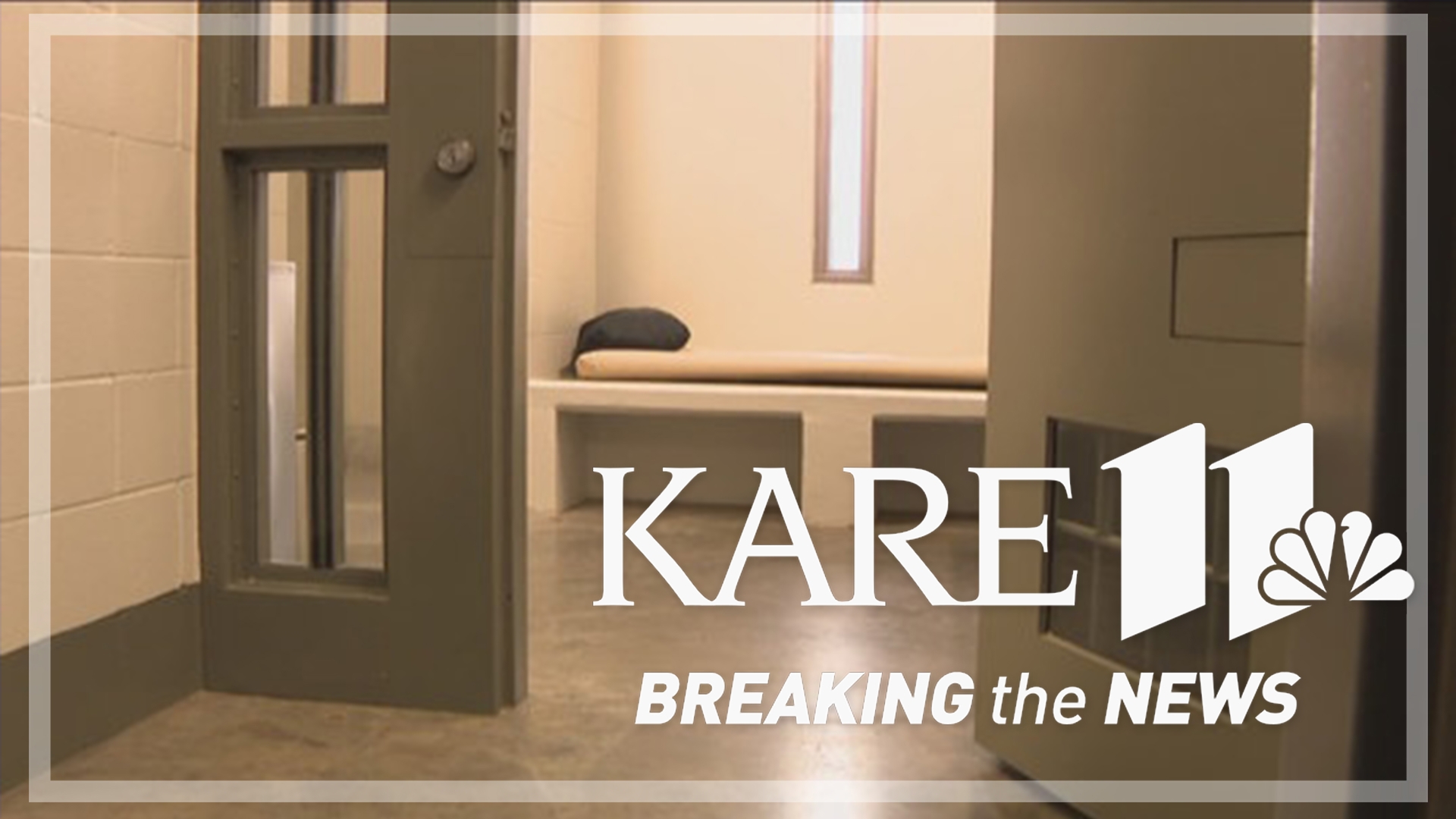MINNEAPOLIS — After receiving an extension from the state, the Hennepin County Sheriff's Office now has roughly three weeks to fix an overcrowding crisis in its downtown jail facilities.
The Minnesota Department of Corrections placed the Hennepin County Adult Detention Center's license on conditional status last month and demanded the jail to reduce its population to 600, setting an initial deadline of Nov. 14 before pushing that date back to Dec. 5. In a written order to the county, the state cited seven deaths since 2022 and blamed staffing shortages for the county's inability "to adequately supervise inmates" and "respond to emergencies."
Sharon Brooks, founder of a Twin Cities nonprofit "Peace of Hope" that assists families of the incarcerated, said many of her clients do not feel comfortable having relatives in the Hennepin County Jail right now.
"We don't. We absolutely don't," Brooks said. "It's a broken system."
However, according to the latest published data, Hennepin County has made substantial progress toward the state's target population of 600.
As of late Friday afternoon, the county had 667 people in custody at Sheriff's Office facilities, down from 723 just one day earlier. So far, 186 people have also been annexed to alternate locations, which include the Hennepin County Adult Corrections Facility in Plymouth and neighboring county jails. The largest share of inmates have moved to Wright County.
Hennepin County currently has agreements with five counties to help relocate inmates. Sheriff Dawanna Witt has initiated discussions with 14 other counties as well.
For the incarcerated people and their families, though, the relocation process can be difficult to navigate.
"The strain is tremendous. The not knowing," Brooks said. "Families are thinking, how will I get to -- let's just say, Wright County or Anoka -- how can I get there? And what's going to happen when I get there?"
The situation in Hennepin County is hardly unprecedented. Last year, the state made similar demands to Ramsey County to reduce jail overcrowding, describing an "immediate risk" to people housed inside the facility.
Across the country, jails have become particularly overwhelmed since the start of the pandemic four years ago.
"They're dealing with ratios of staff, to incarcerated people, that without a doubt make conditions unsafe," said Wanda Bertram of the Prison Policy Initiative, which studies mass incarceration. "What we've seen since COVID is, understaffing has gotten worse, but it's a problem -- I want to be clear -- that goes back decades and decades."
Bertram specifically cited the case of Nevada, where the state started utilizing drones to make up for staffing shortages. In Hennepin County, Sheriff Dawanna Witt told KARE 11 earlier this year that her agency was down 20 percent in detention deputies.
At the same time, the Prison Policy Initiative has long argued that there are simply too many people in jails that don't need to be there. Bertram referenced data showing that nearly a quarter of inmates in Hennepin County since March 2020 have been booked on "public order" charges.
Although county data shows more than half of the people currently in Hennepin County custody face serious charges such as assault, homicide and weapons crimes, there is a notable portion -- more than 13 percent -- facing drug charges, which are sometimes intertwined with mental health struggles.
"There's a large proportion of people in local jails across the country, that have a serious mental health issue," Bertram said. "There have been a lot of jails that have attempted to alleviate the problems of jails not being equipped to handle these situations, by adding new facilities, adding new services. Unfortunately, because of the larger issue of staffing shortages -- especially in the medical department -- they're not really able to follow through on those initiatives."
James Stuart, the executive director of the Minnesota Sheriff's Association, also acknowledges the same problem.
"Certainly the opioid crisis is one of them. The mental health challenges are very significant across the state," Stuart said, "as we try to find adequate beds."
In Hennepin County, the clock is ticking toward Dec. 5 for Sheriff Witt to find other beds for Hennepin County inmates, although her agency is only one part of the broader criminal justice system.
Sharon Brooks said she has confidence that Witt can find the right solution to manage jail overcrowding, as long as she's able to work closely with prosecutors, judges, partner law enforcement agencies and other stakeholders.
"We can do better," Brooks said. "But we have to face the reality that this is a team effort."

